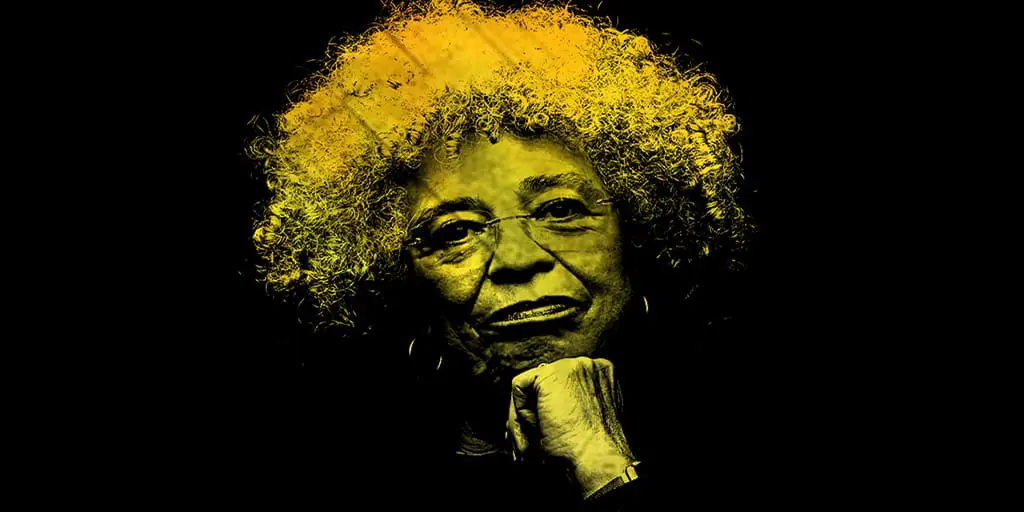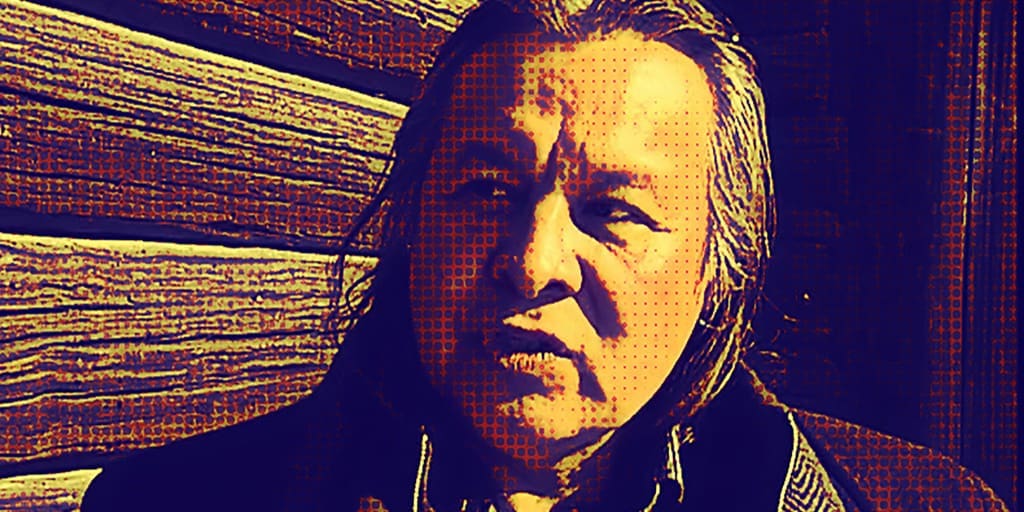Angela Davis: A Legacy of Activism
Angela Davis: A Legacy of Activism and Academia
Angela Davis, a name synonymous with unyielding activism, intellectual prowess, and unwavering dedication to social justice, emerged from humble beginnings in Birmingham, Alabama. Growing up in the heart of the segregated South during the Jim Crow era, Davis experienced firsthand the oppressive systems that marginalized Black communities. Her early life was marked by the stark realities of racism, discrimination, and inequality, which fueled her passion for advocacy and shaped her commitment to challenging systemic injustices.

Table of Contents
Angela Davis Growing up in America
Angela Davis’s early life growing up in America was profoundly shaped by the realities of racial segregation, discrimination, and systemic injustice. Born on January 26, 1944, in Birmingham, Alabama, a city known for its deep-seated racism and segregationist policies. Davis grew up in a predominantly Black neighborhood, where she witnessed firsthand the pervasive effects of segregation on her community.
Segregation laws enforced strict racial divisions, dictating where African Americans could live, work, and socialize. Davis attended segregated schools, where resources were scarce, and educational opportunities were limited compared to those available to white students. Despite these challenges, Davis excelled academically and demonstrated a keen intellect from a young age.
Davis’s family played a significant role in shaping her early life and values. Her parents, Sallye and Frank Davis, instilled in her a strong sense of social justice and resilience in the face of adversity. They encouraged her to question authority and to stand up for what she believed in, laying the foundation for her future activism.
As a teenager, Davis became increasingly aware of the racial injustices that permeated every aspect of society. The brutal murder of Emmett Till in 1955 and the Montgomery Bus Boycott in 1956 were pivotal events that fueled her growing activism and commitment to social change. Inspired by the courage and resilience of civil rights activists, Davis became determined to join the fight for racial equality.
Davis’s experiences of racism and discrimination during her formative years profoundly influenced her worldview and shaped her future trajectory as an activist and scholar. Her early life growing up in America provided her with a firsthand understanding of the deep-seated inequalities and injustices that continue to plague the country to this day.
Despite the challenges she faced, Davis’s early life was also marked by moments of joy, community, and resistance. She found solace and inspiration in the music, literature, and culture of the Black community, which provided a source of strength and resilience in the face of adversity. These formative experiences would later inform her activism and scholarship, as she sought to challenge the systems of oppression that had shaped her early life growing up in America.

Angela Davis and life as a Marxist
As a Marxist, Angela Davis has consistently critiqued the capitalist system for perpetuating exploitation and inequality. She has highlighted how capitalism commodifies labor, leading to the exploitation of workers, particularly those from marginalized communities. Drawing from Marxist theory, Davis has emphasized the importance of collective struggle and solidarity in challenging capitalist structures and advocating for a more equitable distribution of resources.
Throughout her activism and scholarship, Davis has applied Marxist analysis to a wide range of social issues, including racism, sexism, and imperialism. She has examined how capitalist exploitation intersects with other forms of oppression, such as racism and sexism, to perpetuate systemic inequality. By situating her activism within a Marxist framework, Davis has sought to uncover the root causes of social injustice and envision alternative systems based on principles of equality and solidarity.
Davis’s embrace of Marxism has also led her to advocate for radical social transformation. She has been a vocal critic of reformist approaches that seek to mitigate the worst excesses of capitalism without fundamentally altering its underlying structures. Instead, Davis has called for revolutionary change that challenges the power dynamics of capitalism and builds alternative forms of social organization based on principles of cooperation and collective ownership.
In addition to her theoretical contributions, Angela Davis has been actively involved in Marxist organizations and movements throughout her life. She was a member of the Communist Party USA in the 1960s and 1970s, and she has maintained close ties with socialist and communist organizations around the world. Through her activism and organizing efforts, Davis has sought to build alliances across diverse social movements and advance the cause of socialist revolution.
Deep Rooted Feminism
As a feminist, Angela Davis has been a vocal advocate for the rights and liberation of women, particularly Black women who face multiple layers of oppression. She has challenged mainstream feminist movements for their historical exclusion of the experiences and struggles of women of color, arguing for a more inclusive and intersectional approach to feminism. Davis’s feminism centers on the recognition that systems of oppression are interconnected and must be addressed collectively to achieve true liberation.
Throughout her career, Davis has addressed a wide range of feminist issues, including reproductive rights, violence against women, and economic inequality. She has emphasized the importance of recognizing the ways in which race, class, and gender intersect to shape women’s experiences and opportunities. By highlighting the intersecting forms of oppression faced by marginalized women, Davis has expanded the scope of feminist discourse and activism.
Davis’s feminism is also deeply political, informed by her commitment to social justice and liberation struggles. She has been a staunch advocate for reproductive justice, which encompasses not only the right to abortion but also the right to have children and raise them in safe and supportive environments. Davis has also been active in movements to end gender-based violence, including sexual assault and domestic abuse, highlighting the ways in which these forms of violence intersect with broader systems of oppression.
In addition to her activism, Davis’s scholarship has made important contributions to feminist theory and practice. Her groundbreaking book “Women, Race, & Class” explores the intersections of race, class, and gender in shaping women’s experiences of oppression and resistance. Through her writing and speaking engagements, Davis has challenged dominant narratives about gender and power, offering new insights into the complexities of women’s lives.
Angela Davis the Political Activist
One of the defining moments in Davis’s activism was her involvement in the Civil Rights Movement during the 1960s. As a student at Brandeis University and later at the University of California, San Diego, Davis became deeply engaged in the fight against racial segregation and discrimination. She participated in protests, sit-ins, and other forms of direct action, joining forces with other activists to demand an end to Jim Crow laws and racial injustice.
Davis’s activism took on new dimensions in the 1960s and 1970s as she became increasingly involved in the Black Power movement and the struggle for Black liberation. She was a member of the Black Panther Party and the Communist Party USA, organizations that were at the forefront of efforts to challenge police brutality, economic inequality, and institutional racism. Davis’s activism during this period was characterized by her fearless advocacy for Black liberation and her willingness to confront the powers that be.
One of the most significant moments in Davis’s political activism came in 1970 when she was charged with aiding and abetting the kidnapping and murder of a Superior Court judge in California. Davis became a target of government repression and faced intense scrutiny from law enforcement agencies determined to silence her voice. However, Davis’s case galvanized a massive international campaign for her freedom, with activists around the world rallying to her defence.
Davis’s trial and eventual acquittal on all charges catapulted her into the international spotlight and cemented her status as a symbol of resistance against injustice. Despite facing threats to her life and ongoing harassment from law enforcement agencies, Davis remained undeterred in her commitment to political activism. She continued to speak out against racism, sexism, and imperialism, using her platform to amplify the voices of the marginalized and oppressed.
Throughout her life, Angela Davis has been involved in a wide range of political causes, including the fight against apartheid in South Africa, the struggle for Palestinian rights, and the movement to abolish the prison-industrial complex. She has been a vocal critic of U.S. foreign policy and militarism, advocating for peace, diplomacy, and international solidarity.
Today, Angela Davis remains an iconic figure in the world of political activism, revered for her courage, resilience, and unwavering dedication to social justice. Her life and work serve as a powerful reminder of the transformative potential of grassroots organizing, collective action, and the ongoing struggle for liberation.

A Distinguished Philosopher
Davis’s philosophical work is informed by a wide range of theoretical frameworks, including Marxism, feminism, and critical race theory. She has explored the intersections of race, class, gender, and power, offering new insights into the complexities of oppression and resistance. Davis’s scholarship is marked by its interdisciplinary approach, drawing from history, sociology, literature, and other fields to illuminate the workings of systemic injustice.
One of Davis’s most influential contributions to philosophy is her work on abolitionism and the prison-industrial complex. In her book “Are Prisons Obsolete?” Davis argues that prisons are not only ineffective at addressing the root causes of crime but also perpetuate cycles of violence, poverty, and oppression. She advocates for a radical reimagining of justice that prioritizes community-based alternatives to incarceration and addresses the underlying social and economic conditions that lead to crime.
Davis’s philosophical writings have also explored the relationship between capitalism and oppression, highlighting the ways in which capitalist exploitation intersects with racism, sexism, and other forms of oppression. She has critiqued the capitalist system for its inherent inequalities and exploitation of marginalized communities, calling for a more equitable distribution of wealth and resources.
Throughout her career, Davis has challenged dominant narratives about race, gender, and power, offering new perspectives on issues such as identity, resistance, and liberation. Her writings on feminism, intersectionality, and Black liberation have reshaped the landscape of philosophical inquiry, inspiring scholars and activists around the world to engage critically with these issues.
As a distinguished philosopher, Angela Davis has received numerous awards and honors for her contributions to scholarship and activism. She has held prestigious academic positions at universities around the world and has been invited to deliver lectures and keynote addresses at conferences and events across the globe. Davis’s influence extends far beyond the academy, as she continues to engage with broader publics through her writing, speaking engagements, and activism.
Prolific Output of Influential Books
One of Davis’s most notable works is her groundbreaking book “Women, Race, & Class,” published in 1981. In this seminal text, Davis examines the intersections of race, class, and gender, offering new insights into the experiences of marginalized women throughout history. Drawing from historical research, feminist theory, and personal narrative, Davis explores the ways in which systems of oppression intersect and shape women’s lives, highlighting the importance of solidarity and collective struggle in the fight for liberation.
Another significant work by Davis is her autobiography, “Angela Davis: An Autobiography,” published in 1974. In this memoir, Davis reflects on her experiences growing up in the segregated South, her involvement in the Civil Rights Movement, and her activism in the Black Power movement. The autobiography provides a personal and intimate account of Davis’s life and activism, offering readers a glimpse into the challenges and triumphs she faced along the way.
In addition to her books, Davis has written numerous articles, essays, and speeches on a wide range of topics, including racism, feminism, capitalism, and abolitionism. Her writing is characterized by its clarity, insight, and commitment to social justice, inspiring readers to engage critically with issues of power, privilege, and oppression.
Davis’s work as an author extends beyond traditional print media to include speeches, lectures, and public appearances. She is known for her powerful oratory skills and her ability to captivate audiences with her impassioned speeches and insightful analysis. Davis’s speaking engagements have taken her to universities, conferences, and community events around the world, where she continues to inspire and educate audiences with her wisdom and vision for a better world.

Commitment to Education, Activism, and Social Justice
Throughout her academic career, Angela Davis has held teaching positions at various universities and institutions around the world, including the University of California, Los Angeles (UCLA), the University of California, Santa Cruz (UCSC), and Stanford University. As a professor, Davis has been deeply committed to engaging students in critical dialogue and fostering a deep understanding of the complexities of social justice issues.
At UCSC, where she served as a professor in the History of Consciousness Department, Davis’s teaching and scholarship focused on a wide range of topics, including feminism, critical race theory, Marxism, and abolitionism. She encouraged students to think critically about the intersections of race, gender, class, and other forms of oppression, and to explore the possibilities for collective action and social change.
Davis’s approach to teaching was deeply informed by her own experiences as an activist and scholar. She brought a unique perspective to the classroom, drawing from her activism and research to provide students with a rich and nuanced understanding of the issues they were studying. Her lectures were known for their passion, insight, and intellectual rigor, inspiring students to engage with complex ideas and to challenge dominant narratives.
In addition to her work in the classroom, Davis has been actively involved in mentoring and supporting students from marginalized communities. She has served as a mentor and advisor to numerous graduate students, particularly those from underrepresented backgrounds, providing guidance and support as they navigate their academic and professional careers.
As a professor, Angela Davis has used her platform to advance the cause of social justice both inside and outside the classroom. She has been a vocal advocate for diversity, equity, and inclusion in higher education, calling attention to the systemic barriers that prevent marginalized students from accessing educational opportunities. Davis has also been active in campus organizing efforts, supporting student-led movements for racial and economic justice.
Angela Davis’s life and work are a testament to the power of activism, intellect, and courage in the fight for social justice. From her upbringing in the segregated South to her role as a professor and scholar, Davis has consistently challenged injustice and inspired others to join her in the struggle for a more just and equitable world. Her legacy will continue to resonate for generations to come, reminding us of the importance of standing up for what is right and working tirelessly to create a better future for all.
*All Book Images Open a New tab to our Bookshop
**If you buy books linked to our site, we get 10% commission from Bookshop.org, whose fees support independent bookshops.



































Leave a Comment